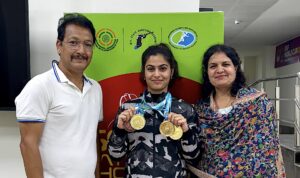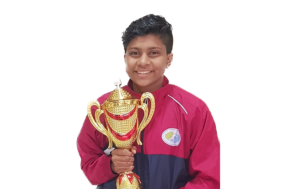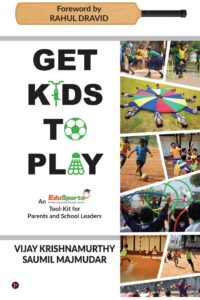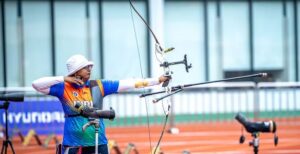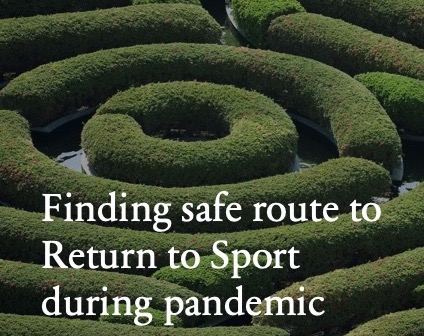
World No. 30 ranked badminton player HS Prannoy on Saturday agreed with a suggestion that an athlete’s return to competition after recovering from Covid-19 infection must not be rushed by impending major competitions but must be facilitated only after a thorough assessment of his or her overall physical and mental well-being.
Speaking during a conversation on TwitterSpaces, facilitated by Fortis National Mental Health Program and moderated by its Director Dr. Samir Parikh, on Saturday, Prannoy revealed that he had discovered only recently that the bouts of coughing during his downtime owing to Covid-19 infection had led to some torn muscles around his rib-cage.
Prannoy and three other Indian players tested positive for Covid-19 in December last and he played two Thailand Open tournaments in Bangkok in the second and third weeks of January this year. He beat the Asian Games champion Jonatan Christie after a three-game battle but had pointed out even then that he some pain in the ribs because of inflamed chest muscles.
Such shared learnings, as was done by Prannoy, can only help the sports landscape become better in India, especially from a mental wellness perspective. It may be unfair to assume that all athletes will face some issues but given that hockey star Surender Singh was hospitalised after developing clots and other athletes complain of weariness, athletes need all-round support.
It is understandable that each athlete recovering from Covid-19 would be anxious to train and compete at the earliest, especially with the Olympic Games looming. Some are seeking qualification while others are looking for a competitive environment to hone their talent in pressure situations. The pandemic is the last thing they want to see as a hurdle in their journey.
In fact, the challenges grow manifold as there seems little attempt to document the return to sport journeys of athletes who have rallied from Covid-19. In fact, GoSports Foundation Executive Director Deepthi Bopaiah pointed out that it is crucial to take note of the fact that new information on the virus and its impact on the population was surfacing daily.
She drew everyone’s attention to IOC’s Toolkit on Mental Health in Elite Athletes and how the Sports Authority of India and many organisations like hers were conducting workshops for the Indian athletes to help them deal with anxiety and worry. “We are also helping them connect them with sports psychologists to ensure their mental wellness is catered to,” she said.
Sport and Counselling Psychologist Divya Jain, Fortis Hospitals, shared her observations of the changing psychological needs of athletes in the first and second waves of Covid-19 in India. “Back in 2020, it was about dealing with sudden uncertainty. Now, as they get closer to the Olympic Games, anxiety has taken over,” she said.
On a wider perspective, there is a greater need for more informed conversations in India around mental wellness of the athlete for India to evolve as a sporting nation. Prannoy had a valid point when he indicated that the present set up for mental health focusses mostly on supporting elite athletes. “What about those who do not have access to such assessments?” he asked.
Some numbers will be in order here. The IOC reckons 13 per cent of the world population experiences some form of mental disorder, though Dr. Parikh put this at 20 per cent. The International Olympic Committee (IOC) revealed that a 2019 meta-analysis found that 33.6 per cent of elite athletes and 26.4 per cent of ex-athletes reported symptoms of anxiety/depression.
Dr. Parikh asked – and with good reason – why there is such a palpably low acceptance of the role of sports psychology in India. It is not an easy question to answer but I went ahead and cited a couple, including the low education levels of India’s athletes as well the coaches’ reluctance to allow the circle of support to grow any bigger than they wanted.
Indeed, from a mental health perspective, it is important that athletes (and, indeed, everyone else in the sports ecosystem), are empowered to seek professional help not only in dealing with mental health issues but also to strengthen the mind and use it as a tool for performance enhancement. The number of coaches who assume that role in sport defies belief.
Yet, the IOC Mental Health in Elite Athletes Toolkit highlights the fact that a coach’s support when an athlete seeks or is in need of mental health treatment can greatly decrease stigma and improve help seeking behaviours for athletes. It is a learning that needs to percolate to the lowest rungs of the sporting ecosystem. But many elite coaches have to make that start.
Divya Jain drew attention to the marked shift in mindset towards sports psychology in the past few years. “With a number of former athletes speaking about anxiety and depression, the younger ones are more aware and ready to seek help,” she said, giving rise to hope that India will embrace sports psychology without the hesitation that has dotted the timeline earlier.
